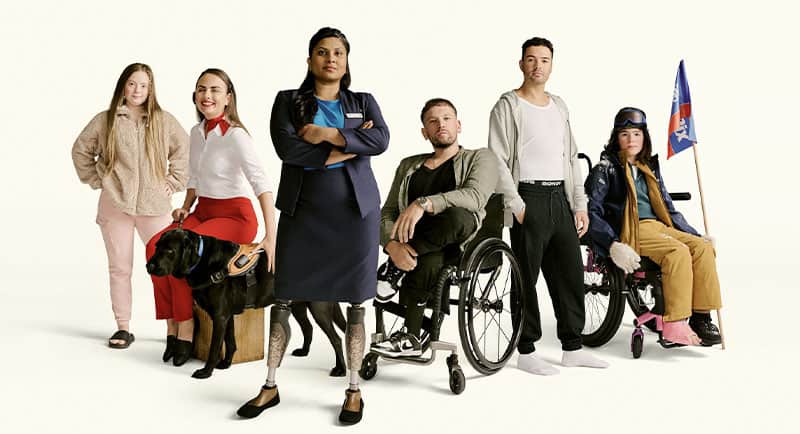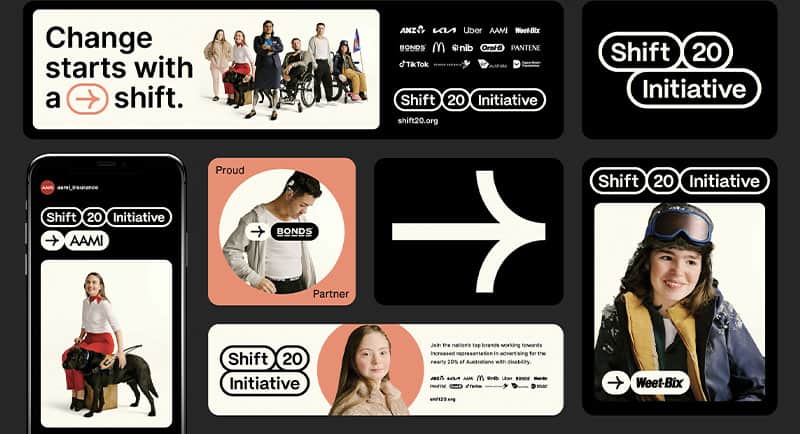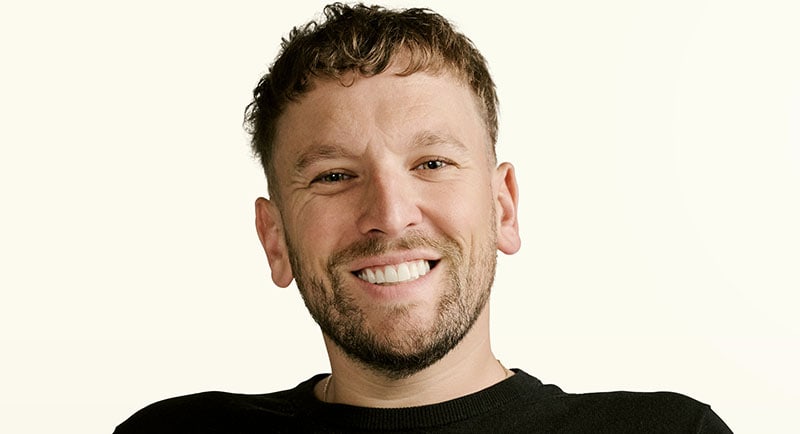By Dylan Alcott
Growing up, one thing I struggled with when I turned on the TV, the radio, or picked up the newspaper, was that I didn’t see or hear anybody like me. I saw non-disabled people. The only time I saw people with disability was as a result of a tragic car accident – the person looking sad and helpless in a wheelchair, deterring you from speeding. I used to believe this stereotype was my destiny in life – and it used to break my heart.
For nearly one in five Australians, this is the reality they still live with almost every single day. Because despite there being almost 4.5 million Australians living with disability, we are only represented in one percent of global advertising. One percent.

But with almost 20% of our population living with some form of visible or invisible disability, we make up a significant percentage of the consumer market. We’re eating at Maccas, we’re getting rideshare, we’re wearing undies, we’re opening bank accounts and we’re washing our hair – but right now we can’t see ourselves, and are left out when it comes to representation in advertising.
When it comes to inclusion of people with disability, advertising done properly is listening to those people’s lived experience, but also understanding the massive opportunity of having representation of the whole population in your brand’s work.
Being more inclusive for customers is not just the right thing to do, it’s good for business, with recent research by TRA, showing a commitment to representation to be not only socially beneficial, but also economically, with 49% of respondents more likely to purchase from brands showing fair representation for people with disability. In short; when people living with disability see people who look and sound like themselves, not only are they more likely to buy the product or service being advertised, but so too are those around them – mothers, fathers, siblings and friends, who have also been impacted by disability.
We really wanted the inclusion of people with disability to become the norm, which is why, working alongside thirteen of Australia’s most prominent brands, we’ve founded the Shift 20 Initiative.
The Shift 20 initiative demonstrates the importance of visibility on-screen, by encouraging brands to commit to fair representation of disability. Initially, we’re changing a scene within ten of our founding brand’s current ads to include a person with disability, but we hope to go far beyond that, providing resources and consultancy for brands on how to be more inclusive long term. This is all whilst providing opportunities and opening doors for people with disability to be themselves and see themselves on screen, creating employment pathways for people with disability both on-screen and behind the camera.
What we are doing here is different. It’s innovative, it’s productive, but most importantly we’re empowering our talent to be themselves, to consider new career paths, to act, to thrive, to get out there and to know that they matter just as much as anyone else. We don’t think people understand how powerful that is. Not just for our community, but for you, for everybody to learn.
Seeing people like me on TV would have changed my life, and that’s what is so powerful about this initiative. The talent are not famous people with disability, instead, they’re ordinary people doing ordinary things; eating breakfast, brushing their teeth, going to work and buying insurance.
We hope working in the way we have, valuing the skills and talents of those with disability in the same way we would anyone else, and partnering with the brands who are approaching this with such enthusiasm, we can shift perceptions when society thinks of people with disability. We want people to not only think of gold medal Paralympians or someone in an accident to pity. Instead, we want everyone to see normal people just like them. We want non-disabled kids to watch these ads and see someone with a disability as their equal, and not lesser than. Hopefully, on a wider scale, this will encourage everyone to have a different perspective, so you might then hire someone in your business with a disability or see someone in a bar who is blind or deaf and ask them on a date.

So, what can brands do? It’s pretty simple. Value talent with disability and look to be inclusive of the nearly one in five Australians with disability. Have greater representation in your ads, help build the talent pool both in front of and behind the camera, and show this to be a valid and possible career path. Gather resources and use the information at shift20.org to educate your teams. Include people with disability in the conversation by taking advice from those with lived experience on how to best represent us. All we really want is for you to allow us to show you who we really are.
Because the thing we’d love Australia to learn out of this campaign is that we as people with disability, we shop, we eat, we travel, we work, we’re great talent, we’re just normal people. But only when given the opportunity to be ourselves.
See Also: The Shift 20 Initiative: Setting the standard for representation in advertising
–
Top Image: Dylan Alcott
